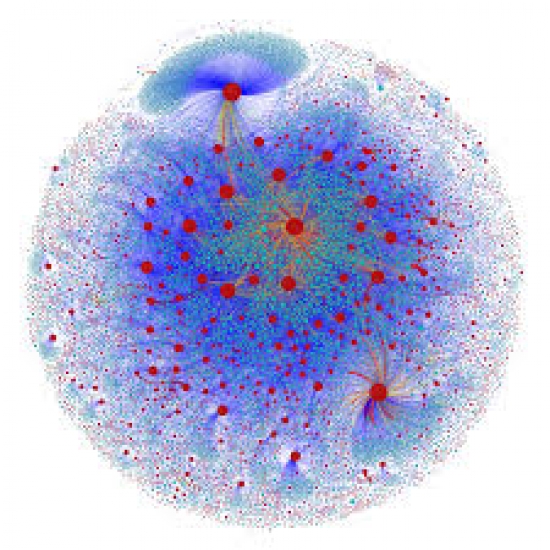This Fall, Political Science Ph.D. Candidate Rochelle Terman wants to expose other graduate students to a broad palette of useful digital humanities tools in the hopes that they will be encouraged to make use of new methods in their own research. Co-taught with Laura Stoker, an associate professor in the Political Science department, Terman sees PS239T as a “really hands-on, practically-oriented, skills-based course” in which humanists and social scientists can learn from instructors with a similar background and skill set to themselves rather than turning to computer science courses which are not tailored to humanists’ research needs. The course is supported through a New Course Components Grant from Digital Humanities at Berkeley.
Reducing confusion and alienation among humanities majors attempting to break into programming is key to Terman’s teaching philosophy, which emphasizes that computer skills and programming know-how are obtained through practice rather than innate ability. Terman hopes to push back against a strong culture of autodidactism and self-directed learning in programming.
Terman is familiar with the challenges of self-teaching programming skills as a social scientist, as she herself learned to program through years of trial and error rather than by following any consecutive training model. Although she was able to develop useful skills, Terman believes that the classroom presents a more efficient learning environment, one which will empower humanists to learn to program and build their project independently, rather than relying on someone else to put together the nuts and bolts of their digital projects for them.
PS239T is recommended for both beginning and advanced graduate students across all humanities and social science disciplines, but is specifically designed to fit the needs of those with little or no programming knowledge. “We are not making assumptions about what students know how to do before they enroll in this class … diversity [of experience] is to be hoped for,” says Terman. She believes that students in any discipline could benefit from the principles being taught in the course. “There are some things that you just can’t do without programming knowledge, data sources that you can’t access,” she says. In addition, she emphasizes the efficiency that digital tools can provide to humanistic researchers, tools that can save them many hours when organizing and managing research data sources.
Finally, Terman hopes that the course will help dispel the notion that digital humanities research is a fringe element or fad in the humanities, as it will provide students with concrete tools that will expand their research horizons and help them acquire skills that are valuable both inside and outside of the academy.
Terman is developing the course with the assistance of Chris Krogslund, a fellow Political Science Ph.D. Candidate who has worked at the D-Lab as a consultant. He is currently helping Terman to prepare the core course topics, which include an introduction to programming languages like R and Python as well as more specific digital skills such as web scraping and utilizing APIs. Like many digital humanities projects, the course provides an example of the strong ethos of collaboration between scholars.
The four-unit course will meet once a week for lecture, to be accompanied by a optional but recommended lab session on another day during the week.
Course Details
Tuesdays 4 - 6 PM
CCN: 72290 4 Units
Limit: 15 students
View current enrollment details
This course will provide graduate students the critical technical skills necessary to conduct research in computational social science and digital humanities, introducing them to the basic computer literacy, programming skills, and application knowledge that students need to be successful in further methods work.
The course is divided into three main sections: skills, applications, and community engagement. The “skills” portion will introduce students to basic computer literacy, terminologies, and programming languages - i.e. Unix Shell, R, Python, and Git. The second part of the course provides students the opportunity to use the skills they learned in part 1 towards practical applications such as automated text analysis, geospatial analysis, network analysis, data collection via APIs, crowdsourcing and online experiments, and data visualization. The third section on community engagement will introduce topics such as ethics and privacy, best practices of reproducible research, scholarly communication and collaboration, and how to further one’s research using UC Berkeley campus resources.
